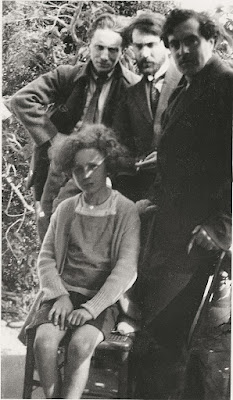THIS SH*T HAPPENS ALL THE TIME by Amanda Verlaque
THIS SH*T HAPPENS ALL THE
TIME by Amanda Verlaque
At the Lyric Theatre,
Belfast on March 23rd 2022
Amanda Verlaque’s new
play This Sh*t Happens all the Time eschews symbolic logic for a
hyper-realist aesthetic. The title
itself gives up on the contrivance of traditional theatre, when a title is crafted,
brief and summarising, for a realistic statement derived from everyday life which
has little to do with theatre and more to do with a speech or a sermon.
This is a one person show
which happens to be intensely, brilliantly performed by Caoimhe Farren as
Me. Farren holds together her monologue which
is replete with its own pathos and humour, although the message is direct and
unambiguous. This message consists of
homophobia, homophobic attitudes, and crimes which were hitherto unlegislated
for. This lack of subtlety is a flaw,
but it also indicates the author’s belief that theatre is didactic and must
have a purpose beyond mere entertainment.
The problem is that the monologue form is at odds with the realist
aesthetic. Its hard for these to be
sustained simultaneously.
The play’s language is colloquial
and direct, obviously Verlaque uses the full range of seedy, uncomplicated,
discriminatory language to underline her point.
Verlaque puts responsibility squarely on Farren’s shoulders for the
plays evolution by refusing to create scenes and characters. Paradoxically, many of the scenes are
anti-realist as if a theatre group had decided to cut out everything but a
lonely, dislocated voice raving in front of a neon sign. Music and lighting are adeptly used to point
out time shifts and contrasts such as a shift of decades or a movement of
location and the work of Sarah Jane Shiels must be praised in relation to this.
Sophocles was also a
writer who sought to divulge taboos and unwritten laws, but he did so in a way
which sets up intriguing opposites, characters that are not ciphers or
representatives of an idea, a philosophy or a point of view, and a story
wherein events are logically and chronologically displaced rather than being revealed
in order. Verlaque’s technique is to
leave us in no doubt because no other position is ever even considered, there
are no other characters in the play.
This appears to be the work of a priest, a sermoniser, or a didactic
politician, not a writer which is essentially the position that Verlaque is
attempting to undermine. She seems to be
opposed to sermonisers, priests and didactic politicians who created the culture
where the crimes she depicts took place.
Although the play bangs on with its message and evokes the colloquial at
every point, radical, didactic plays rarely do this. Instead, dramatists like Bertolt Brecht, for
instance, attempted to undermine their works realist claims by pointing to the
artifice, not away from it.
Verlaque’s work is an
interesting experiment, but it seems to fail to complete its ambitious claims,
and this failure seems to reveal itself at the level of the writing. An ensemble cast complete with characters,
situations and scenes might have evoked a more complex symmetry.
Paul Murphy, Lyric
Theatre, March 2022

Comments